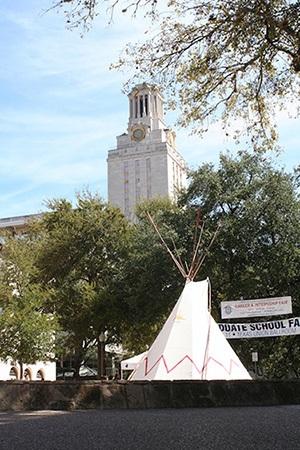Have you noticed that Staff Council meetings begin with a land acknowledgement?
When did this start?
During the UT Staff Council General Meeting in October 2020, UT Staff Council representatives overwhelmingly passed a resolution to support the “UT Land Acknowledgement" presented on behalf of the Land Acknowledgement Committee by Circe Sturm, professor of anthropology and faculty member in the Native American and Indigenous Studies (NAIS) program within the College of Liberal Arts.
What is a land acknowledgement?
It is a powerful way of showing respect to the Indigenous peoples who are the original caretakers of the land on which we work, study and love. It makes UT a more welcoming space for Indigenous students, faculty and staff.

What impact does a land acknowledgement have?
The land acknowledgement counters a sense of erasure. The needs of Indigenous staff, faculty and students are often ignored or come only as an afterthought. This land acknowledgment places Indigenous people and land at the forefront. Native Americans on the Forty Acres will certainly feel more visible and respected.
What can I do to get more involved?
Acknowledgment is a simple, powerful way of showing respect and a step toward correcting the stories and practices that erase Indigenous people’s history and culture. You can voluntarily begin each meeting with a land acknowledgment or adopt any of the following:
- Offer recognition and respect.
- Counter the “doctrine of discovery” with the true story of the people who were already here.
- Create a broader public awareness of the history that has led to this moment.
- Begin to repair relationships with Native communities and with the land.
- Support larger truth-telling and reconciliation efforts.
- Remind people that colonization is an ongoing process, with Native lands still occupied due to deceptive and broken treaties.
- Take a cue from Indigenous protocol, opening up space with reverence and respect.
- Inspire ongoing action and relationship.
Sources: Professor Circe Sturm, UT Austin Department of Anthropology and faculty member in the Native American and Indigenous Studies program and the U.S. Department of Arts and Culture
By: Melissa Misselhorn, UT Staff Council Communication Committee member and Representative for District 220